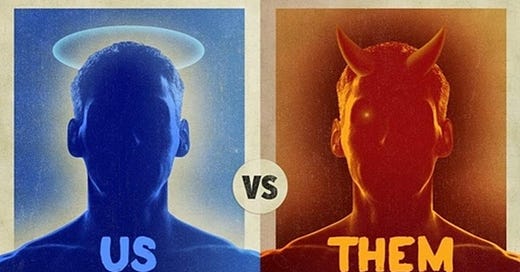“We fall captive to the herd animal if we cannot reach the individual divinity in ourselves.”
Carl Jung, ETH Lecture December 1939
A healthy sense of self is built upon two primary components: the realization of our unique potential and the identification with a set of collective norms. If we tend too far in the direction of either one of these components our personality will develop in a distorted manner. An extreme individualism is anti-social and does not give proper weight to the wisdom of tradition, while an over-identification with the collective leads to pathological conformity and a lack of self-reliance. The ideal is to strike the golden mean between these two extremes, embracing both our individuality and our collective nature.
In the modern day few walk this middle-path rather, morbid distortions of the self are the norm and the most common distortions stem from veering far too close to the personality extreme which Carl Jung called a “futile collectivism”. In this video we will explore the dangers of over-identifying with groups or collectives, and why this is leading to a divided, hostile, and easily controlled society.
“No wonder that nowadays there is a feeling of catastrophe in the air, as though an avalanche had broken loose which nothing can stop. The collective man threatens to stifle the individual man, on whose sense of responsibility everything valuable in mankind ultimately depends.”
Carl Jung, Civilization in Transition
Collectivism is a philosophical doctrine and central to it is the idea that groups, or collectives, are superordinate to the individuals who compose them. Typically collectivism is discussed with respect to political ideologies. Both fascism and communism are collectivist political ideologies which demand that individuals sacrifice their property, well-being, and sometimes even life for the so-called “greater good” of the nation-state. With respect to personality development, however, futile collectivism refers to the situation in which an individual derives his or her identity and self-worth primarily from membership in certain collectives or groups.
This proclivity to identify with a collective is a key element of identity politics, which, in the words of Douglas Murray:
“…atomizes society into different interest groups according to sex (or gender), race, sexual preference and more. It presumes that such characteristics are the main, or only, relevant attributes of their holders and that they bring with them some added bonus.”
Douglas Murray, The Madness of Crowds
A futile collectivism can also be seen in the tendency of many people to form their identity around their religious or political affiliation, class, ethnicity, or nationality. And as John Goldhammer explains:
“… individuals base their self-image on a collective or group ideal…[and] derive their self-worth and sense of identity from a group…They make the group ideology…the predominant object in their psyches.”
John Goldhammer, Under the Influence: The Destructive Effects of Group Dynamics
Around two hundred years ago the philosopher Arthur Schopenhauer made a poignant observation regarding why people base their identity on groups. In 19th century Germany, nationalism was on the rise and this led many people to forge their identity around the German nation-state. Schopenhauer observed that those who most fanatically identified themselves with their German nationality were typically powerless people in need of a collective identity to compensate for their lack of individual self-worth. Or as Schopenhauer wrote:
“Every miserable fool who has nothing at all of which he can be proud, adopts as a last resource pride in the nation to which he belongs; he is ready and happy to defend all its faults and follies tooth and nail, thus reimbursing himself for his own inferiority.”
Arthur Schopenhauer, Essays and Aphorisms
100 years later the philosopher Eric Hoffer echoed this sentiment:
“The less justified a man is in claiming excellence for his own self, the more ready is he to claim all excellence for his nation, his religion, his race or his holy cause.”
Eric Hoffer, The True Believer
A group or collective identity offers the powerless a variety of psychological benefits, such as the ability to dispense with one of life’s heaviest of burdens – self-responsibility.












